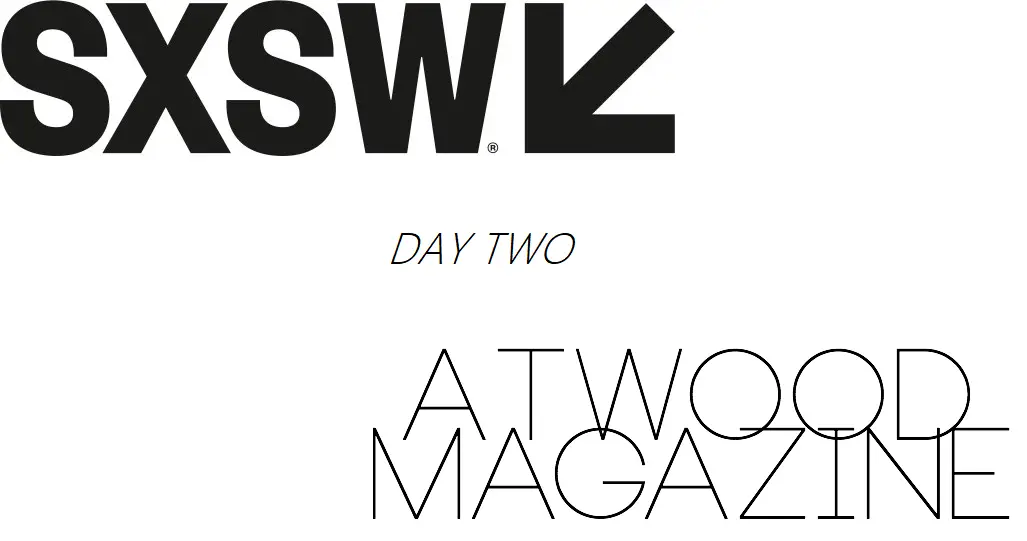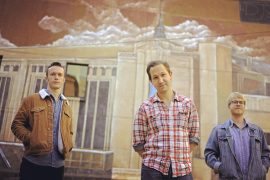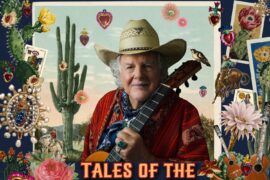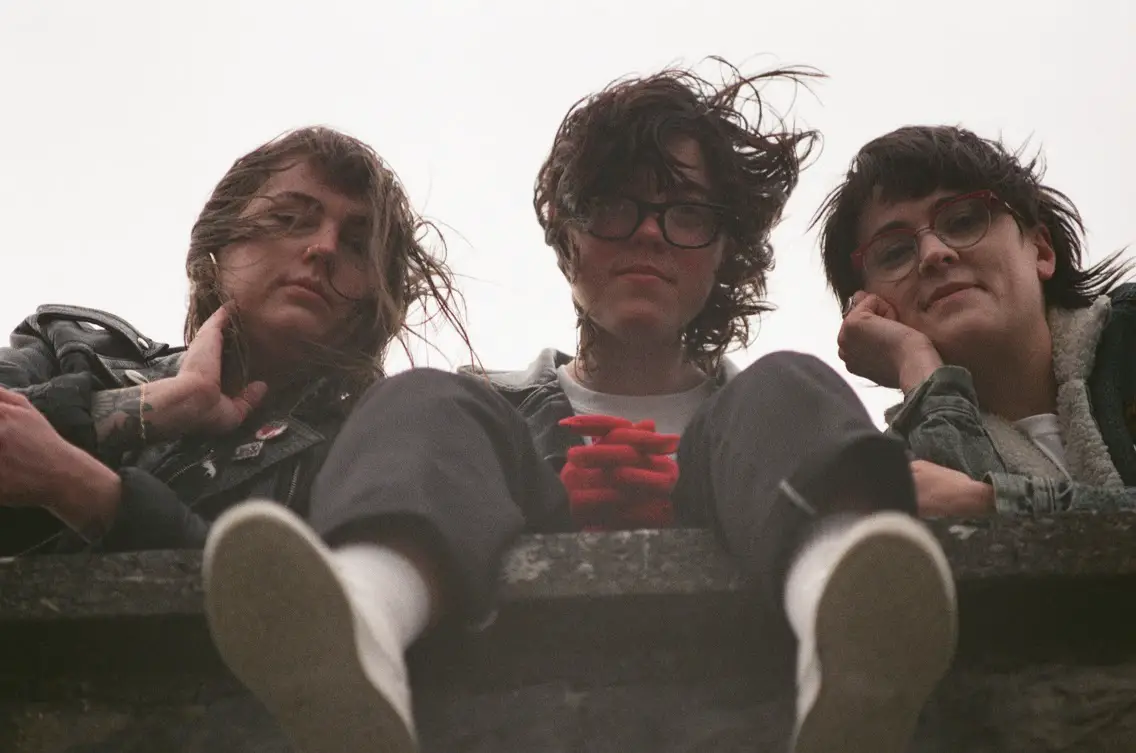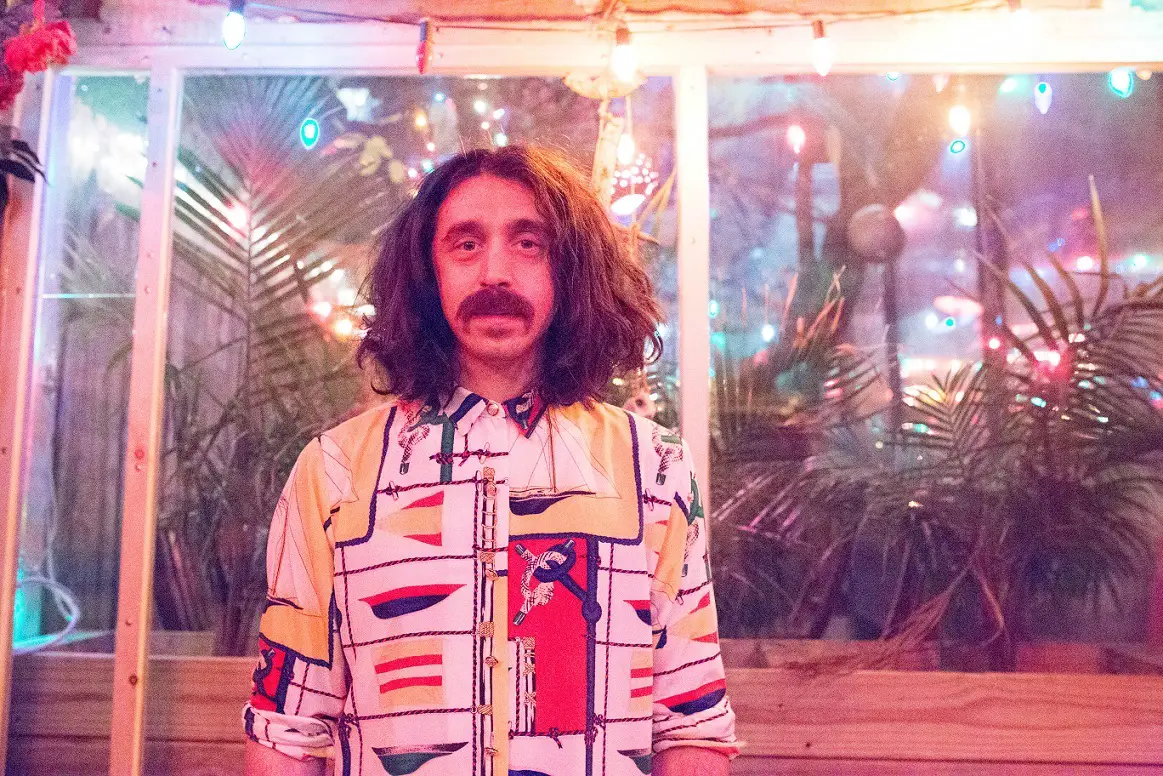Blair Howerton from Why Bonnie talks with Atwood about the new beginnings that inspired the band’s sophomore album, ‘Wish on the Bone.’
Stream: ‘Wish on the Bone’ – Why Bonnie
Blair Howerton isn’t afraid of goodbyes.
This month marks five years since the singer/songwriter and guitarist for Why Bonnie left home and moved halfway across the country. Her band have taken another leap thanks to their excellent new album, even though Wish on the Bone came together when everything else felt like it was falling apart. Heck, even the cover art is a parting gift from her best friend and former keyboardist.
“For me, this album is about hope — and not a naive hope that everything is A-OK all the time,” Howerton tells me at the beginning of our video chat. “The world is messed up. It makes you want to give up, but you just kind of have to keep going and take one for the road, you know?”
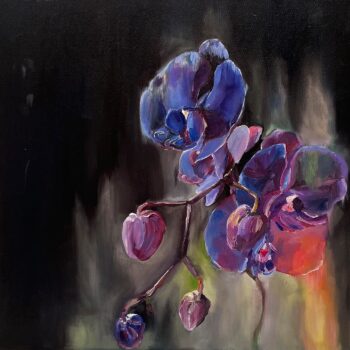
Why Bonnie have come an awfully long way (1,747 miles, to be exact), but they haven’t forgotten where they come from. Even the hazier cuts off Wish on the Bone flash their Texas charm. The lovestruck “Headlight Sun” swoons amidst bluesy guitar licks. “Green Things” serves southern-fried dream pop with a healthy slice of wisdom that my grandma used to dish out at supper. “You were so sweet to me / The sugar blacked me out.” If 90 in November was this band’s idea of a country album, then “Three Big Moons” checks the genre boxes as the Grand Ole Opry intended. Howerton shoots above the sawing violin with knee-slapping jubilation, but the underlying feelings are as high and lonesome as getting sucked out into deep space.
Now that I’m here on this big rock alone
There’s no way up
The only road goes home
“When I’m in a depressed state, I disassociate,” she says. “I feel like I’m in this astronaut suit hovering in space.”
While no longer her solo project, Why Bonnie still starts with Howerton. In its rawest stages, Wish on the Bone didn’t sound too far removed from the watery jangles that she uploaded to SoundCloud as a college student. “I am the least tech-savvy person ever,” she admits, though I’m skeptical. After all, she did co-produce this album with Jonathan Schenke. That said, it wouldn’t take much to convince me that “Weather Song” hasn’t changed since the demo. “I’ll keep you cooled off / And you’ll keep me warm,” Howerton sings, blanketed by little more than three chords that shiver like the memory of summer during the first snowstorm. “Most of the songs begin with just guitars and vocals,” she explains. “It’s very bare bones.”
Bits of Wish on the Bone were being chewed over when Why Bonnie were still fresh on Austin’s DIY scene, but the album wasn’t fleshed out until early 2023, when the band were jamming at Brooklyn’s Figure 8 studios. The first cut that Howertown shared with her bandmates was “Fake Out,” a fuzzy rocker about the swarm of information that’s come to shape post-modern life. “How do you find your own unique voice in a world that’s so loud with other voices?” she asks. Evidently, screaming helps. Just as the song seems content on drifting off into woozy synth land, like a lost beacon from the NYC rock revival, Howerton and co-guitarist Sam Houdeck burst into an euphoric chorus, though the comedown is shockingly just as satisfying.
“What I like about our process is that everyone fills in,” Howerton says. Bassist Chance Williams was just fooling around one writing session when she suggested adding his loping, two-chord progression as the song’s fizzling coda. “We see what everybody does, then edit from there.”
Though not a departure, Wish on the Bone is more confident and, as a result, catchier than 90 in November.
“Dotted Line” just might be the poppiest song that Why Bonnie will ever pen to paper. The darting riff would’ve had label execs fumbling for their checkbook during indie’s commercial peak, which is funny, because Howerton wrote it when she was dead broke. “Being a woman in music is hard,” she says. “It’s a boys’ club and while I love a lot of those boys, it’s hard to get your voice heard. With this album, I was much more trusting of my instincts.” She slipped the song’s hypnotic call and response section into the chorus as it was being mixed.
“Dotted Line” deserves current rotation alongside Soccer Mommy, Waxahatchee and other mainstays at college radio, but to these older millennial ears, Wish On the Bone evokes the shaggy spirit of indie rock’s golden era. They weren’t on my guess list, but I’m not surprised that the album was inspired by Broken Social Scene and the ever-elusive Feist.
“Those are the greatest exports that Canada has ever produced,” Howerton says with a laugh, “and maple syrup.”
No wonder this is Why Bonnie’s first release since signing with Fire Talk. “I’ve always loved the roster,” she says about her new label. “There’s definitely a lot of indie rock, but there are niche pockets within that.” Indies aren’t above genre hopping for the sake of playlisting, but the lack of a clearly defined aesthetic becomes the album’s defining trait. In her head, “All the Money” was slow and spooky but Josh Mallet’s persistent drum shimmy coaxed the song into dancing on the not-so-fine line between Spoon circa Transference and a James Bond flick.
Still, for a stretchy funk-pop oddity like “Peppermint” to stick, Wish on the Bone needs some connective tissue.
“It’s still a bit of a wildcard” Howerton says about the 90 in November holdover, “but I think [Peppermint] really found its footing on this album. It brings the same fun and funkiness that the other songs have.” That tracks — especially when it comes to the album’s stringier middle section. To me though, what holds it all together is Howerton’s voice. Us bloggers can’t think of a higher compliment than to immediately lump a new band into a subgenre that’s as flimsy as “shoegaze-icana,” but the way she tells it, her hushed pinings for cowboy cut-outs and $2 fill ups weren’t exactly what she had in mind.
“When I started my journey as a musician, I thought it wasn’t cool to push my vocals in the way I wanted to,” Howerton says. “I was going for a more subdued sound because that’s the messaging I’d been getting from musicians I really admired. But now, I’m leaning in to how much I love to f*ing sing.”
She sings the f*k out of Wish on the Bone, too. Howerton’s eye for local color is still sharp as a steak knife, opening the album with a savory panorama of asphalt and paint and gasoline saints. Only now, her voice is even saltier and sweeter, like honey butter. The title track bites back at politicians who she, quite frankly, “doesn’t f*k with.” “Your soap box has turned to an ice block / You’ll slip as it melts / It’s hotter than hell.” The way she twists the proverbial knife with a husky yell might invoke fire and brimstone, but her righteous anger is evened out by a cool levelhead. “”We’re in a bad place because no one is taking the time to really care about each other,” she says about our political discourse. After raising its horns in salute to Crazy Horse, the song’s climactic solo is ushered out by a shambling piano that proceeds with all the humility and grace that comes from new beginnings.
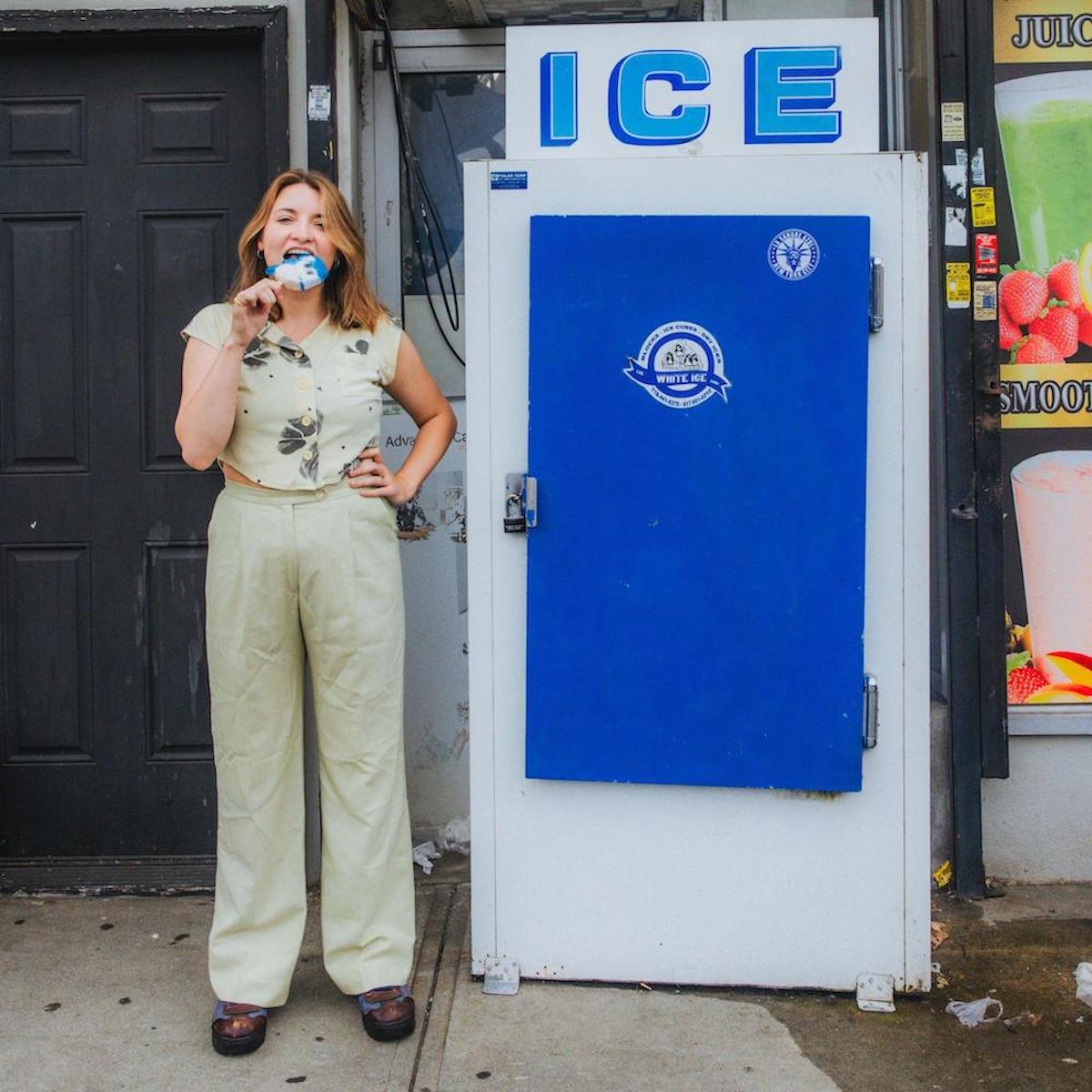
Where their debut looked back with longing on a not-so-distant past, Wish on the Bone gazes into an uncertain future with hopeful resolution.
“I like the imagery,” Howerton says about the title, another downhome phrase that I can hear my grandma turning. “You’re hoping that something good can come from the shit you’re looking at.” Her faith doesn’t go untested. At the end of the album, she gets stood up at her local watering hole. “I remember when / I thought this place would be my home / Our friends all in the backyard / We let get overgrown,” she reminisces with glazed remove. “I Took the Shot” is the one song that would’ve fit seamlessly within the blurred reflections of 90 in November. The lone guitar sloshes with reverb, as if liquified in amber, but she’s not drowning in her sorrows. “Turns out I don’t hate you / And believe me I did try.” As the memory starts to fade, a chiming constellation of synth appears like a glimmer in her eyes.
“We wanted to leave the album with a sense that we’re not completely finished,” she says. “There’s still more to come.”
Wish on the Bone rewards repeated listens, but this isn’t one of those albums that needs to grow on you. As the band braces for the first of many achingly beautiful choruses, it’s painfully obvious that Why Bonnie have taken a step-up across the board. All ten songs are memorable in their own right, but the one I’ll return to the most is one that’s sat with Howerton for the longest time. “Rhyme or Reason” was written about her brother, who died several years ago. “It’s definitely not the same as having someone physically there,” she says about writing this song, a harsh reality that comes to bear during the bridge. “Disappearing warmth of love / like Hailey’s comet.” There’s a tinge of anger to how Howerton sings the following lines, like she’s clenching her jaw to hold back tears. “I’ve never seen its streak / But I hear it comes fast / And you’ll miss it if you blink.”
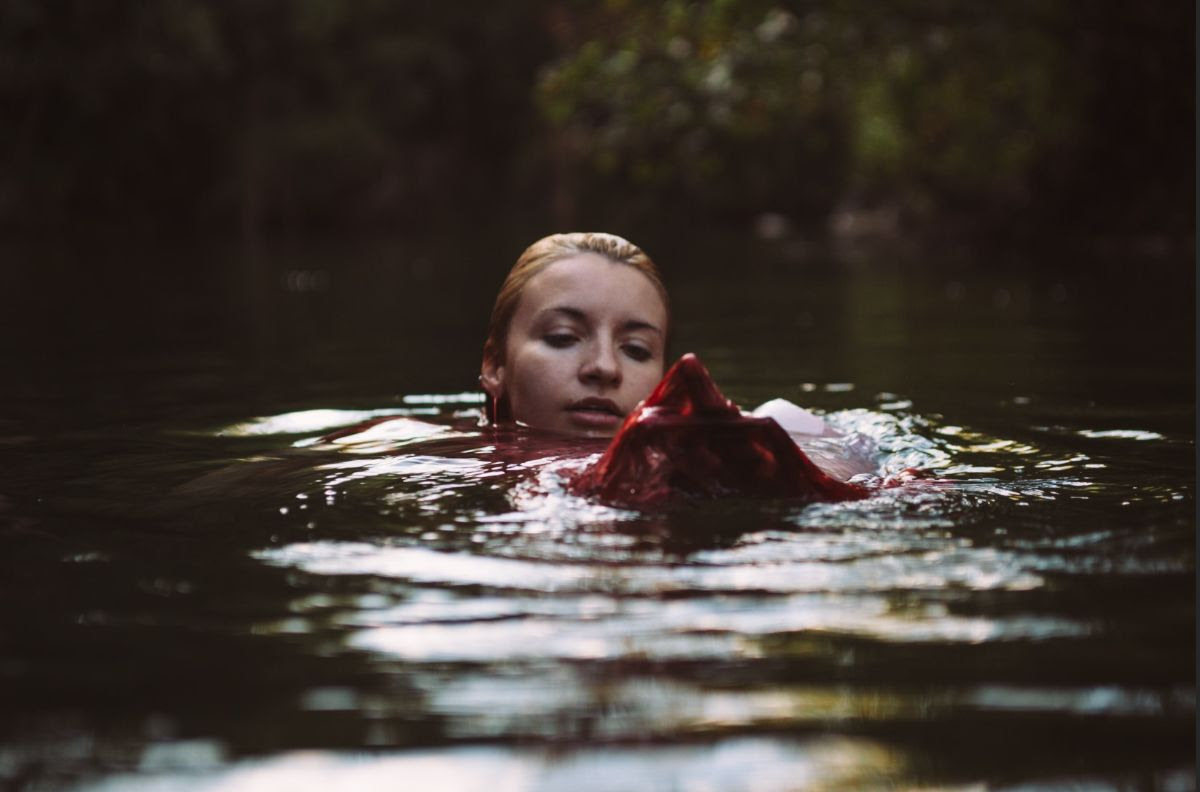
But “Rhyme or Reason” is where the hope slips through the cracks of Wish on the Bone.
Howerton is right; it’s not the same, but the song has become her way of having an ongoing conversation with her brother. “I like to believe that our loved ones who are gone are tapped into something else that we can’t access right now,” she says. “I know not everyone believes that. That’s just my personal belief. But it helps me. It helps me come to terms with the loss and pain. Those conversations that you have with people who are gone take place within your soul, within your memories, in something deeper that you have to not be afraid to access.” After clawing the air, her guitar gives over to a peaceful melody that flows with quiet assurance, like a river that’s guided by the current’s invisible force. “Look into my eyes and tell me / What it is you’re seeing.“
My grandma died while I was writing this feature. I’m not sure whether I believe there’s a God in heaven, but this song gives me hope that she’s still with me somehow. “The love I feel for him is still very real,” Howerton says about her brother. “I’ve been able to deepen that relationship by really opening my mind to the beauty of the world. I think that’s where a lot of the hope in me comes from.”
Read on for more excerpts from Will’s conversation with Howerton. They touched on echo chambers, what makes a good tracklist, polarized politics, lyrical placeholders, 3 Body Problem and the comforts of being alone.
Wish on the Bone is out now on Fire Talk.
— —
:: stream/purchase Wish on the Bone here ::
:: connect with Why Bonnie here ::
Stream: “Rhyme or Reason” – Why Bonnie

A CONVERSATION WITH WHY BONNIE
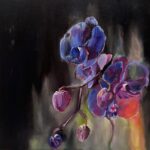
Atwood Magazine: When “Fake Out” was released as the first official single off Wish on the Bone, you said that the song is about trying to be authentic in a world that prizes inauthenticity. What about the world feels inauthentic to you?
Why Bonnie: The messaging that I get. Whether it’s on social media or ads in the subway, people need to be wary of the content that they let seep into their subconscious. You start parroting what you see from the outside world because you think that’s what’s going to get you accepted. That stifles creativity and authenticity. With this song, there was a feeling of frustration and wanting to scream about that.
“Fake Out” has a fuzzy lo-fi aesthetic, whereas “Dotted Line” is more polished and snappy, but they still fit together at the top of the tracklist. How did you approach sequencing the album?
Why Bonnie: We messed around with the sequencing a lot. With a good tracklist, you don’t want to put too many songs that have the same vibe all in a row, but you don’t want it to be whiplashy, either. I’m always trying to find the right flow.
It was hard for us to find the right rhythm. We tried to keep the album from feeling too top heavy. We wanted to save some of our favorite songs for the middle. Originally, “Wish on the Bone” was the end track, but eventually, we landed on wanting to start off with a bang and really draw the listener in.
From there, the album finds its footing in funkier rhythms. And then it dips down with the sweeter moments like “Headlight Sun” and “Green Things.”
The title track reads like a putdown but in a very Southern, bless-your-heart kind of way. Who is this song addressed to?
Why Bonnie: It’s meant to call out the absurdity of people who want to make decisions for everyone else under some guise of moral superiority. But on another level, I want everyone to understand that you don’t know any better than someone else. We’re all the same. You’re not better than anyone. We really just need to take a breath and be compassionate to one another.
You grew up in Texas but now live in New York City. I don't want to make generalizations, but have you felt that lack of compassion in the North and South?
Why Bonnie: It’s easy for people to generalize the South as this too-far-gone, right-wing shithole. The power is in the wrong hands when it comes to Texas politics. They’re banning books and transgender care. But there are millions of people who live in Texas who are fighting for their rights. I applaud those people. It’s really hard to fight against a system that’s so adamantly trying to put you down. While I live in New York, I’m blown away by all the Texans who are sticking back and trying to do the good work.
I wish that I was a bit more versed on New York politics, but there are things that I see during my day-to-day that are insane to me, like rent increases and attitudes toward the houseless community. The police force here is out of control, as it is in most places. I walk into the subway and see five police officers waiting to give people tickets for jumping the turnstile. So much money has gone into increasing the police force and that’s what they’re using it to do.
To me, the most Southern thing about Wish on the Bone is your lyrics. They remind me of Flannery O'Connor or Carson McCullers. The emotions are messy and layered but conveyed with clear economy. Are you a big reader?
Why Bonnie: I’m a big reader until I meet a much bigger reader. [laughs] But yeah, I love to read, particularly short stories or novels with flowery writing. I love John Steinbeck and I do love Flannery O’Connor. I get a lot of inspiration from that economical style of writing, too, where you’re describing a tree but without laying it all out there explicitly. You let the listener fill in the blanks for themselves.
A lot of the time, I write placeholder lyrics. They can be words that come to mind or might just fit the rhythm. I used to work against that. I felt like I hadn’t thought about those lyrics enough, so they couldn’t be the end product. But now, I take it as this subconscious practice. I can be more analytical about it as I go through the songwriting process.
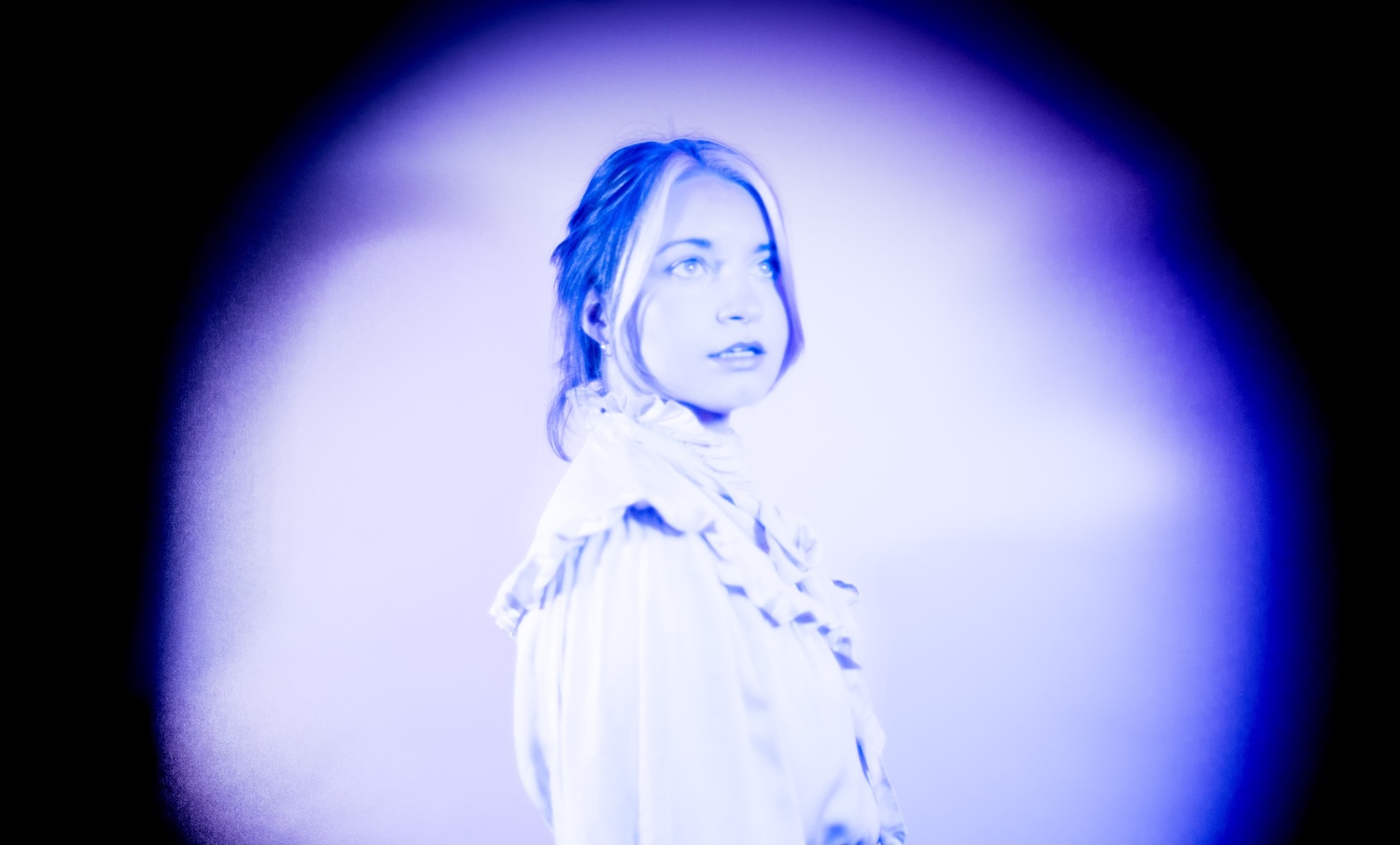
Jeff Tweedy uses placeholder lyrics, too. It blows my mind watching him jibber jabber his way through Yankee Hotel Foxtrot.
Why Bonnie: I saw that in their documentary! I was like ‘Oh my god, I do that, too!’
“Three Big Moons” is the closest that Wish on the Bone comes to classic country. Did you know from the beginning that the song needed a violin?
Why Bonnie: Actually, that came really late in the game. Lily Desmond is an amazing artist who lives in Brooklyn. I connected with her through a friend and asked how she’d feel about playing on this very country song. She did such a good job that we asked her to be on “All the Money,” too. It reminds me of The Chicks and all the good fiddle and violin that they have on their songs.
And yet the lyrics were inspired by a sci-fi novel?
Why Bonnie: The imagery for “Three Big Moons” comes from 3 Body Problem. I am a big fan of sci-fi, but I was also bringing in my own personal experience. Sometimes, feeling isolated almost becomes your safe space. Like I say on the song, ‘There’s no one there to make you feel small’. You’re the king of the world, so there’s no one to compare yourself to. But at the same time, you’re all alone.
I hear you. I'm an only child. Being alone is comfortable for me. I have to push myself out of that protective bubble.
Why Bonnie: I do love to hang out with people and be in the thick of it, but I need my alone time. I have at least two days a week that I call my ‘dead days’ where I just don’t talk to anyone [laughs]. If I get those, then I am fully ready for the weekend. But if not, then I’m not good.
You've said Wish on the Bone came at a time when you were feeling very vulnerable, but that you wrote this album with hopes for a better future. How long did it take you to get to that point?
Why Bonnie: Oh, I’m still very much working on it. When the world seems so dark, it’s really easy to just throw your hands up and say ‘F* it. I give up’. Life experiences will do that to you. Loss will do that to you. But the best things come from the darkest moments. We can hope for change and better things to come.
The cover art captures that feeling. At first, it looked to me like a dying flower. But the more I listen to Wish on the Bone, the more I see that flower is coming back to bloom. Who made it?
Why Bonnie: [smiles] That would be Kendall Powell, who is my best friend in life. She was my first friend and I feel so incredibly lucky to have her. Playing in a band with her for the past seven years was the best experience of my life.
This is her last album with us, so the artwork was almost like her parting gift to the band.
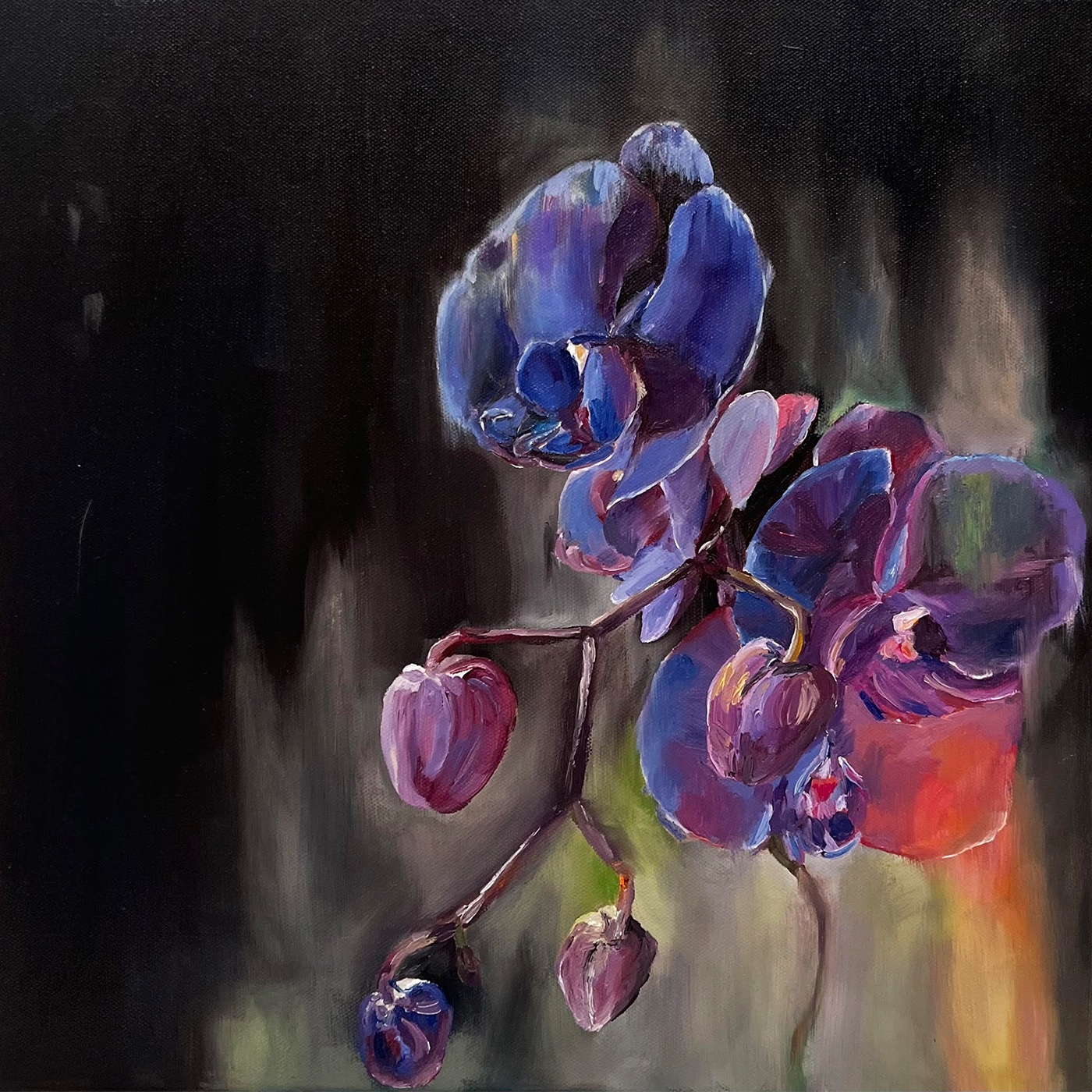
That's so sweet. Has Kendall always been a painter?
Why Bonnie: She’s just one of those people who’s naturally good at everything. She’s always loved painting and drawing but since taking a step back from the band, she’s had more time on her hands. She started cranking out these amazing paintings, like ‘boom, boom, boom.’
Did you have an inkling for what you wanted her to do?
Why Bonnie: The album always felt purple to me. I thought a very vibrant purple orchid against a black background would be a striking image. What Kendall did with it is so beautiful. She added the best textures, like the fun, firecracker colors toward the bottom. It feels very right.
— —
:: stream/purchase Wish on the Bone here ::
:: connect with Why Bonnie here ::
Stream: ‘Wish on the Bone’ – Why Bonnie
— — — —

Connect to Why Bonnie on
Facebook, Twitter, TikTok, Instagram
Discover new music on Atwood Magazine
© Julia Khoroshilov
:: Stream Why Bonnie ::

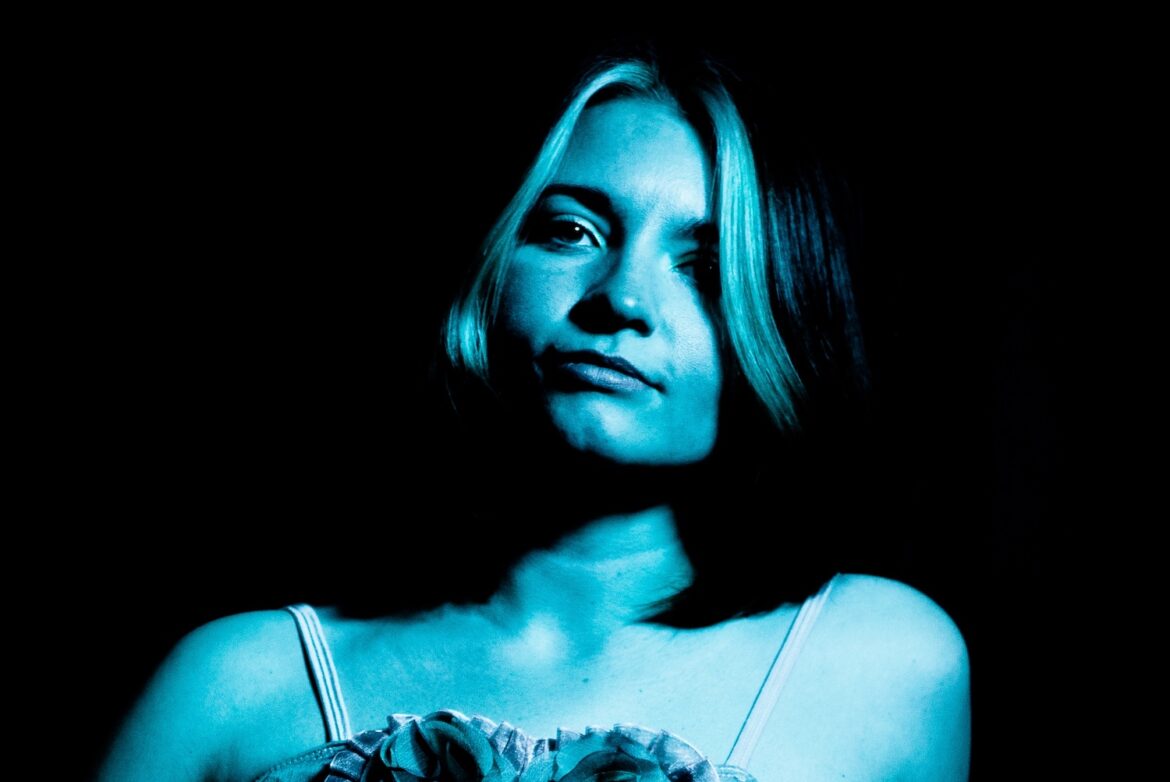
 © Julia Khoroshilov
© Julia Khoroshilov
